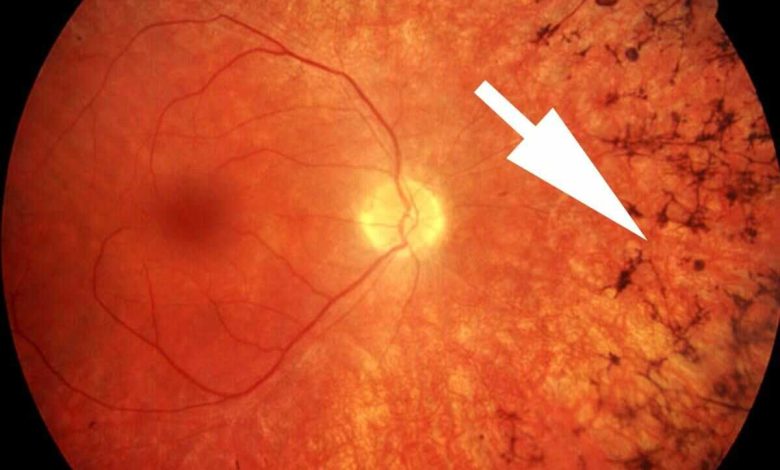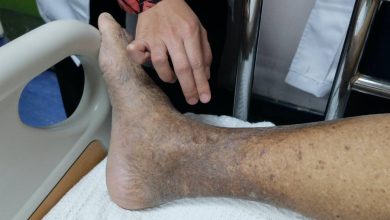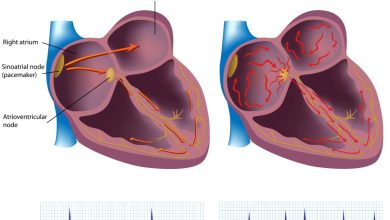Retinitis Pigmentosa Symptoms, Causes, Diagnosis and Treatment

What is Retinitis Pigmentosa?
Retinitis pigmentosa (RP) is a group of inherited eye disorders that affect your retina. They make your retina stop working, causing vision loss. Your retina consists of layers of cells at the back of your eye. They convert light into electrical signals that your brain reads as images. It’s like the film in a camera. If your film is damaged, your pictures aren’t going to come out, no matter how well your camera works.
RP is a condition you’re born with. Symptoms usually start to appear in late childhood and gradually worsen. Your child may start to lose their night vision first, and then later, their peripheral (side) vision. Their field of vision will continue to narrow into adulthood. Most people with retinitis pigmentosa have low vision by the age of 40, and some are legally blind. But it can happen so slowly that it’s hard to notice.
Why is it called retinitis pigmentosa?
“Retinitis pigmentosa” is a misnomer for this condition. “Retinitis” means inflammation of the retina. But retinitis pigmentosa doesn’t cause inflammation. A better term would be “retinal dystrophy.” This means degeneration, or “wearing down” of the retina. “Pigmentosa” is something that happens with RP, though. When your photoreceptor cells wear down, they leave a buildup of pigment on your retina.
What Are The Symptoms Of Retinitis Pigmentosa?
Symptoms usually begin in late childhood or adolescence and progress gradually. They can include:
- Trouble seeing in low light (night blindness)
- Blind spots on the edges of your vision
- Narrowing of your field of vision (tunnel vision)
As your central field of vision declines, you may start to have trouble:
- Reading or doing close work
- Recognizing approaching faces
- Detecting different colors
Symptoms may be so subtle and progress so slowly that you don’t recognize the problem at first. While some see their provider for testing in childhood, others don’t get a diagnosis until much later.
What Causes Retinitis Pigmentosa?
Genetic variations cause retinitis pigmentosa. Your genes provide the blueprint for your cells to build and operate your body. Changes in this blueprint can cause differences in how your body develops or operates, called genetic disorders. Researchers have identified close to 100 different gene variations that can cause RP. You may inherit one from a biological parent, or you may have a spontaneous mutation.
Different gene variations can affect your retina by different pathways. This is why scientists consider retinitis pigmentosa to be a group of disorders rather than one disorder. It’s also why some people may have more vision loss or faster vision loss than others. Some people develop retinitis pigmentosa with other symptoms as part of a larger inherited syndrome, like Usher syndrome, that affects many organs.
What happens when you have retinitis pigmentosa?
When you have retinitis pigmentosa, the cells in your retina gradually start to fail. These cells are called photoreceptors, which means “light receivers.” They take in light and convert it into signals that your brain reads as images. Photoreceptors include rods and cones. Rods provide vision in low light, while cones detect colors and fine details in bright light. RP usually affects your rods first, and later, your cones.
How Is Retinitis Pigmentosa Diagnosed?
An eye care specialist will see signs of retinitis pigmentosa on a standard eye exam. The visual field test will show losses in your peripheral vision. The slit lamp exam and fundoscopy will show signs of retinal disease. Your provider might follow up with retinal imaging to look closer at your retina, or an ERG test to measure its electrical activity. They might suggest genetic testing for related gene variants.
How Is Retinitis Pigmentosa Treated?
There’s no Cure for Retinitis Pigmentosa. But there are many resources available to make life easier for those living with low vision. Ask your provider about vision rehabilitation services, which can include:
- Vision aids and assistive devices
- Occupational therapy
- Special education or vocational services
- Counseling or support groups
Meanwhile, researchers continue to explore potential Treatments for Retinitis Pigmentosa. No one treatment has been proven effective for everyone with RP, but some people may benefit from:
- Gene therapy: Gene therapy is a promising direction in research. But so far, the U.S. Food and Drug Administration (FDA) has only approved one treatment for one RP variant (RPE65).
- Vitamin A supplements: Vitamin A may slow the progression of some forms of RP. But too much vitamin A can also be harmful for some people. Your healthcare provider can advise you.
- Prosthesis: An artificial retina implant (retinal prosthesis) can help provide some vision, but the results vary. Ask your provider if you’re a good candidate for retinal implant surgery.
What can I expect if I have Retinitis Pigmentosa?
Most people with retinitis pigmentosa will have significant vision loss over time — enough to interfere with their day-to-day lives. While no one can predict how much vision you’ll lose or how fast, it’s safe to expect that you’ll need to learn new ways of doing things. Adapting to vision loss can be hard, especially in the middle of your life. But once you’ve made the necessary changes, they’ll become your new normal.
Reference: https://my.clevelandclinic.org/health/diseases/17429-retinitis-pigmentosa
By : Natural Health News




